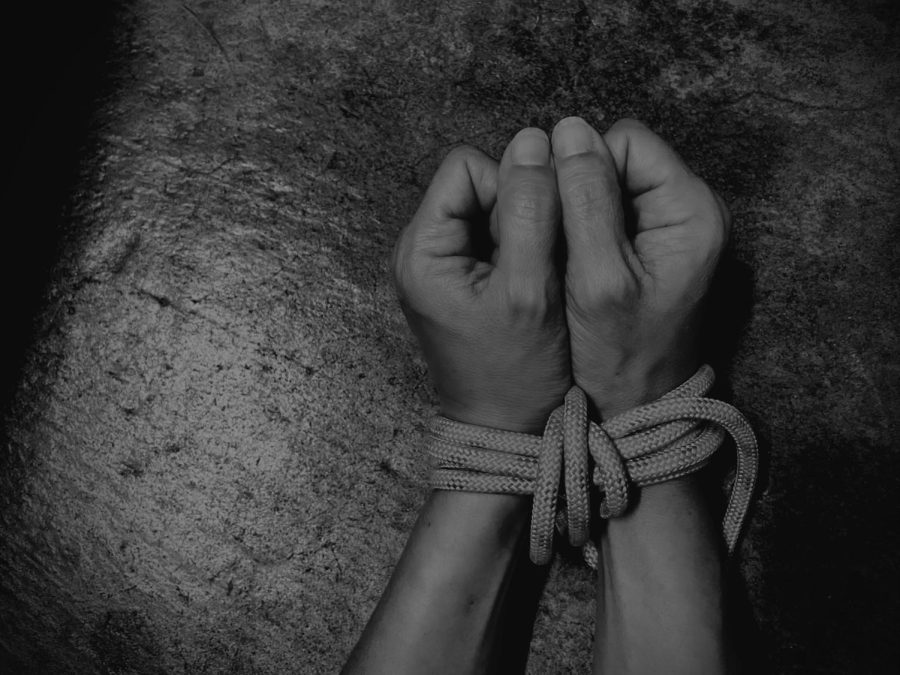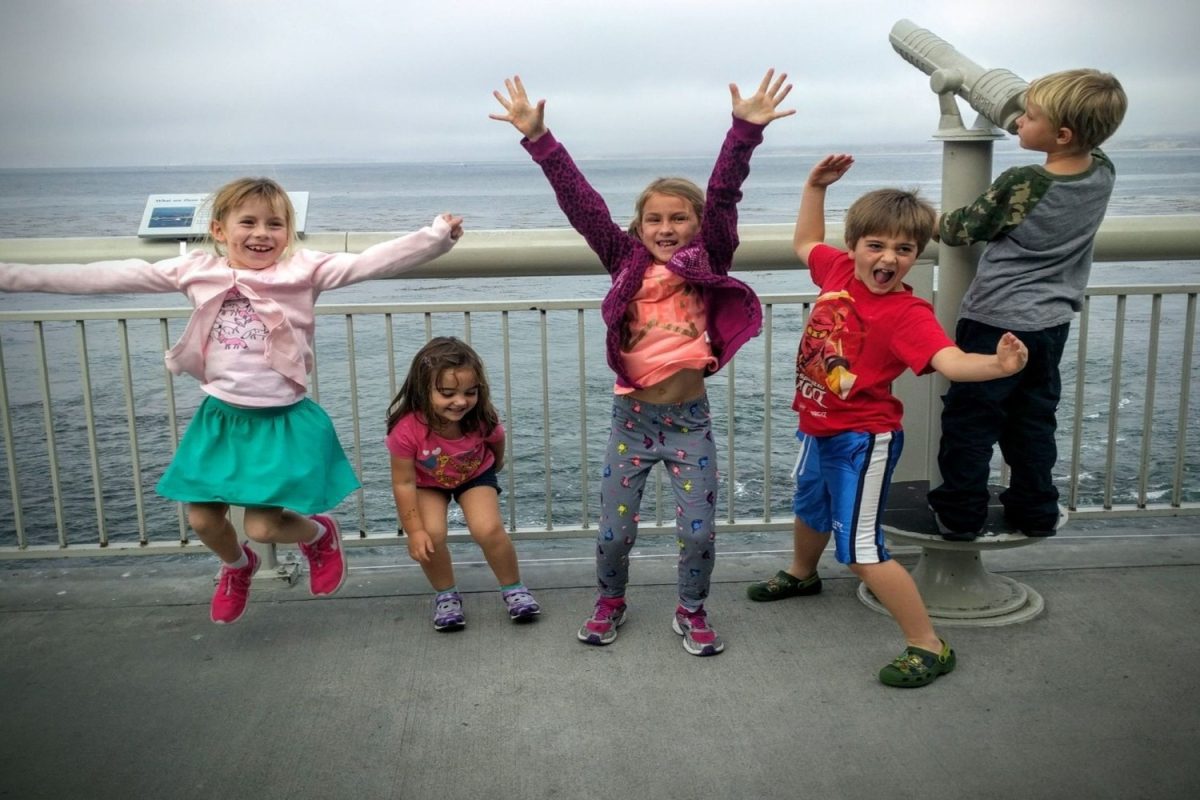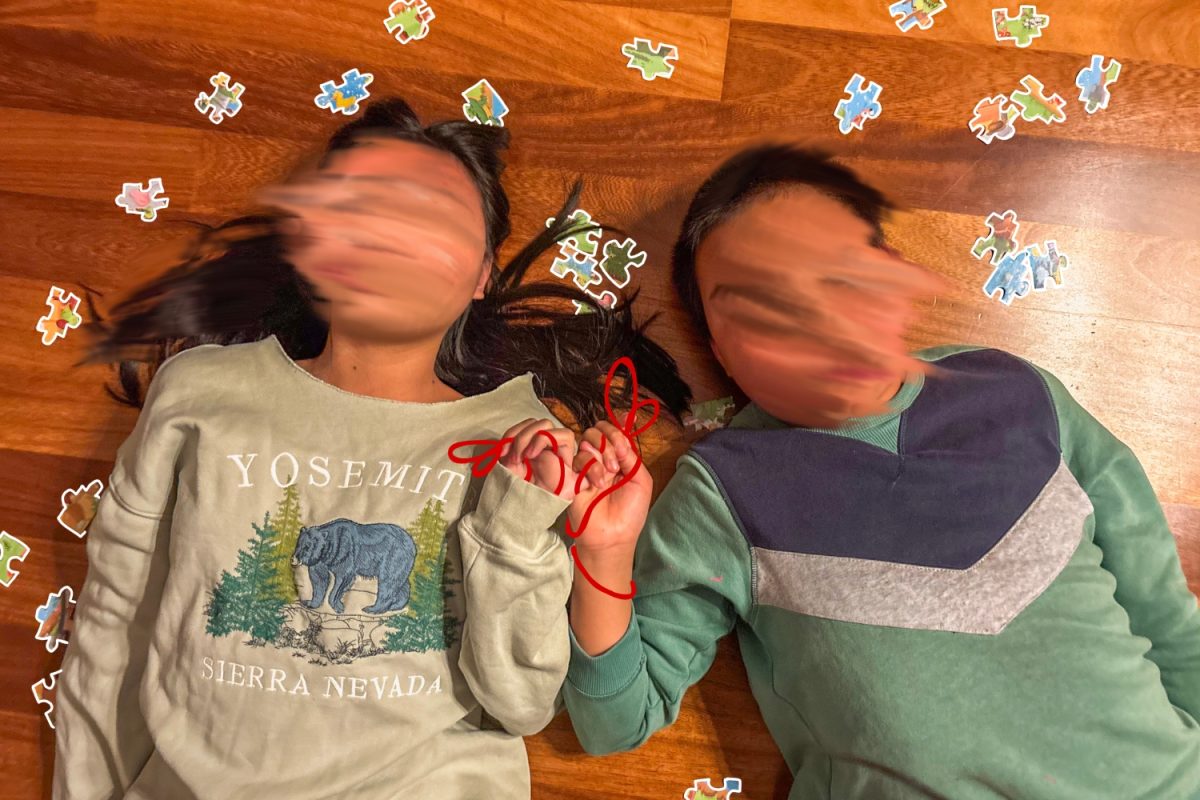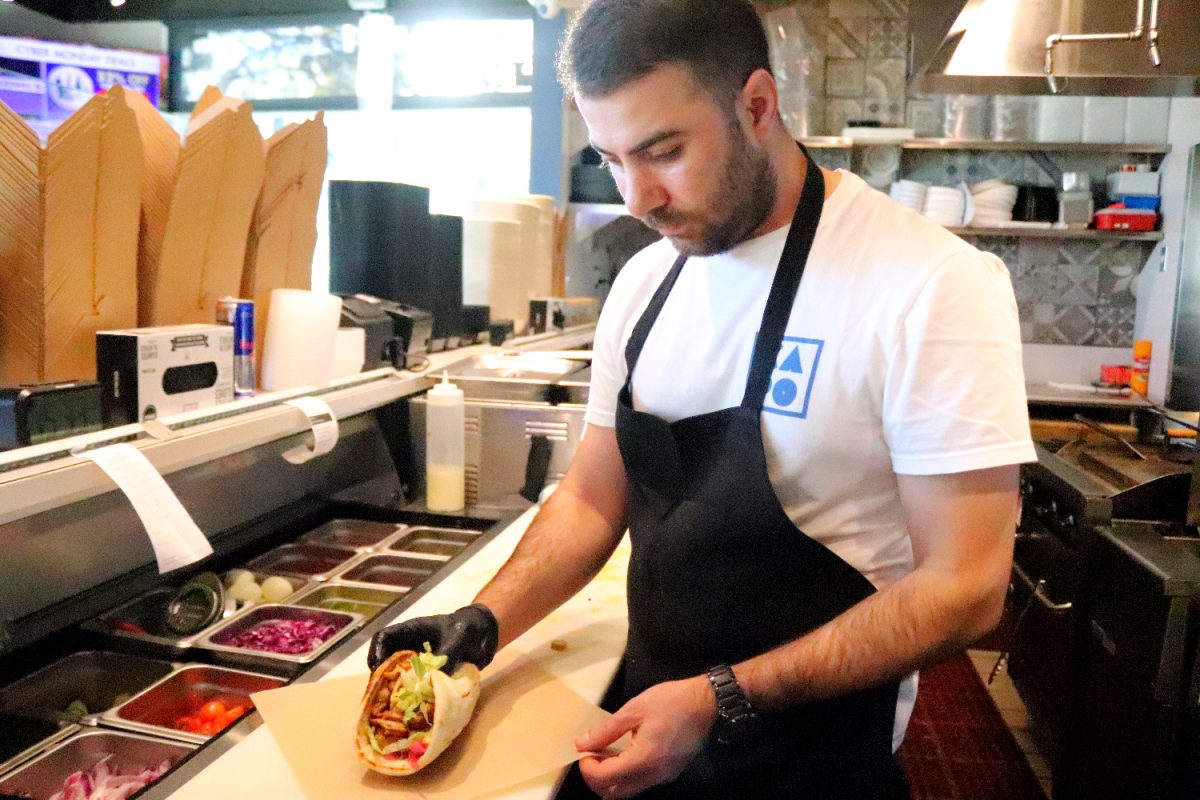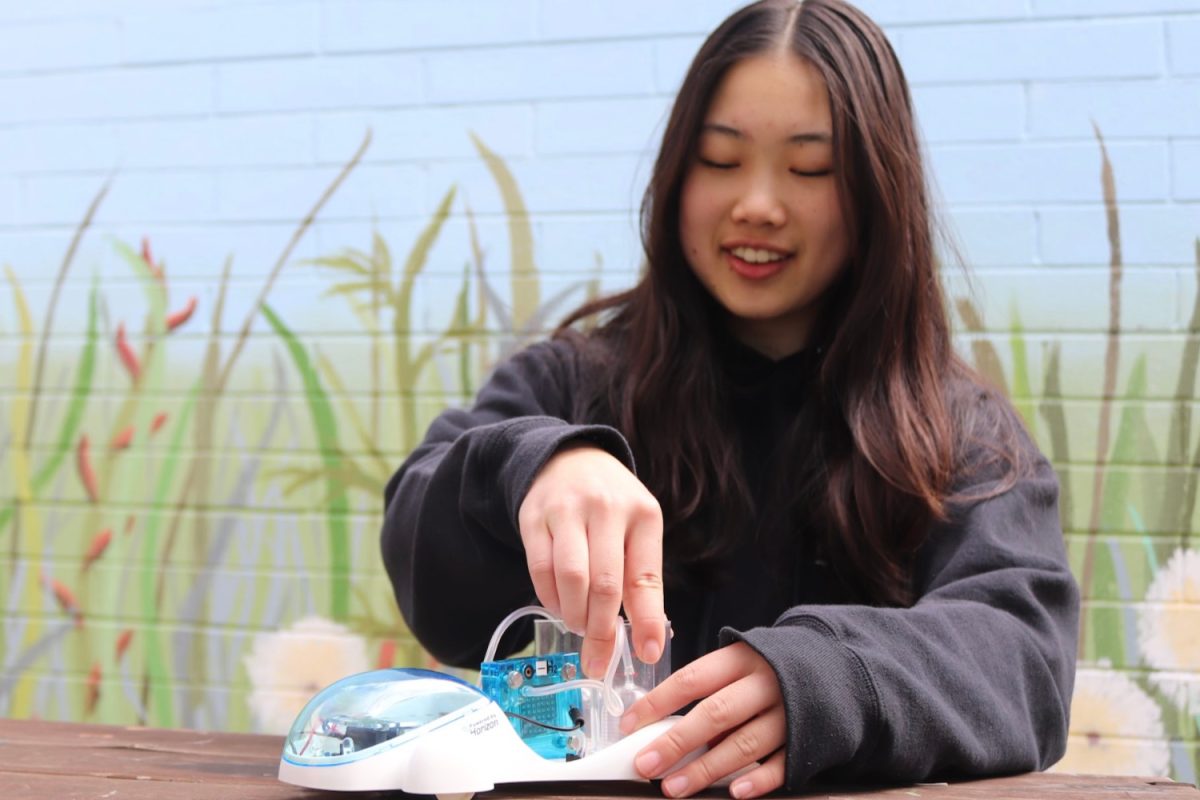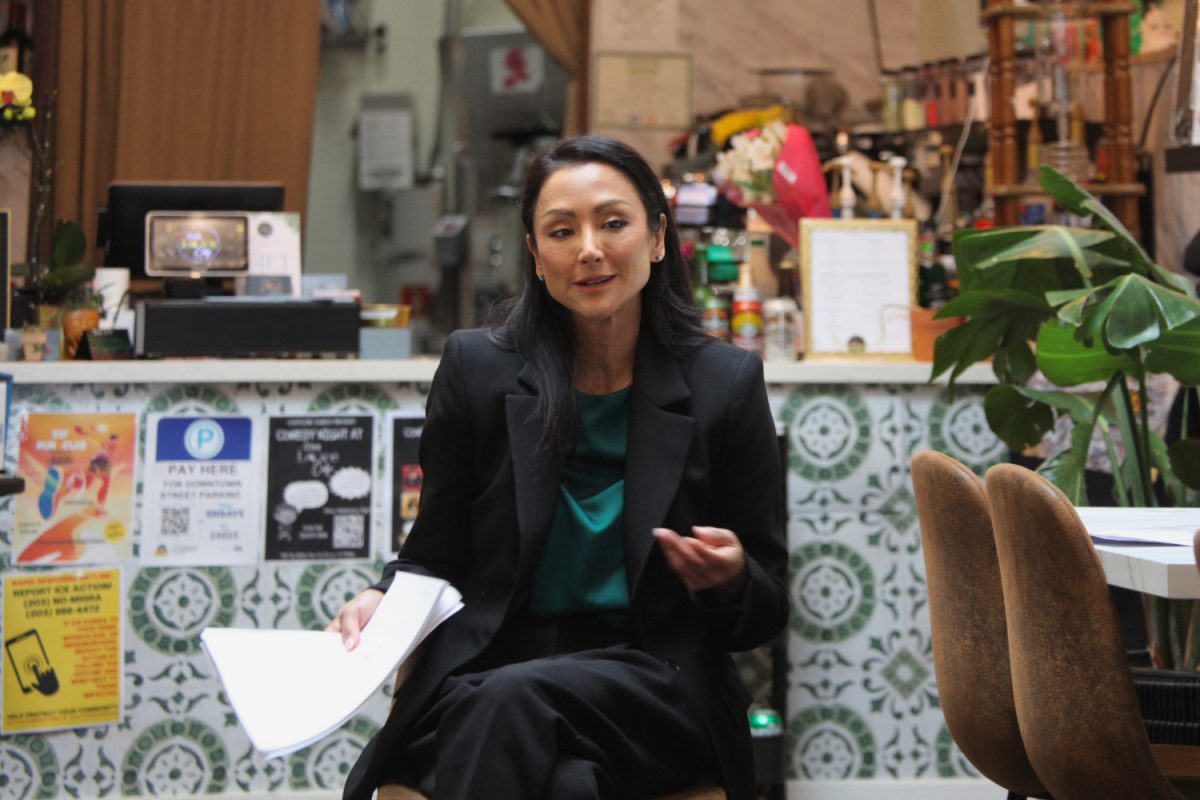Every year, 1.2 million children fall victim to human trafficking.
Every year, human trafficking generates $150.2 billion in illegal profits.
Every year, children are living behind brothel walls, being kept out of contact with their families, and held in horrendous conditions without food or clothing.
According to the United Nations Palermo Protocol (Protocol to Prevent, Suppress and Punish Trafficking in Persons, Especially Women and Children), there are three main components to human trafficking: The act, the means, and the purpose.
Young girls are the main targets victims of sex trafficking and are sexually exploited online or forced to become bonded sex workers in brothels.
According to NPR, one of the largest brothels in the world, located in Daulatdia, Bangladesh, has over 16,000 women “serving” 3,000 men a day. Bangladesh allows the purchase and sale of sex work for workers who are above 18 years old. However, the average age of workers in Daulatia is around 14 years.
To combat these crimes, forces are working to dismantle high sex trafficking zones.
Organizations, like Coalition against Trafficking in Women (CATW), use preventive measures to end sex trafficking in three ways: advocating for strong laws and policies, raising public awareness, and supporting survivor leadership.
According to Nora Hennick, the Communications Manager at CATW, a significant challenge the organization encounters when raising awareness about sex trafficking is breaking through cultural barriers.
“It’s similar to the cultural attitudes surrounding domestic violence: 30 years ago, if a woman was being battered by her husband or intimate partner and she went to the local police, chances are he would tell her, ‘Well, I’m sorry you have a bad marriage.’ Or they’d go to the house and tell the man to just take a walk around the block,” Hennick said.
Hennick points out that a similar attitude is regarded towards the system of prostitution. Prostitution has, at a minimum, limited legality in about 85 countries worldwide. According to Hennick, governments in places where prostitution is decriminalized regard everything from brothels to escort services as legal; the line between legal prostitution and illegal sexual exploitation becomes blurred.
“Law enforcement where prostitution is legal do not have the tools to fight sex trafficking and hold the traffickers accountable. We must remember that there is no fundamental human right for men to buy sex. We are fighting against unwanted sexual access to women’s bodies, not to legitimize it- as prostitution does,” Hennick said.
CATW advocates enacting laws that will decriminalize people bought and sold in the sex trade and also target the sex buyers that uphold it.
According to Hennick, the sex trade is a direct consequence of larger issues.
“Sex trade, including prostitution, is a cause and consequence of gender inequality and gender-based violence… fueling the growth of sex trafficking,” Hennick said.
The Equality Model is a legal framework that fights against the injustice that perpetuates sex trafficking. It criminalizes sex buyers without criminalizing people sold into the sex trade and has since been adopted by Norway, Iceland, Northern Ireland, Canada, France, the Republic of Ireland, and Israel since 1999 from Sweden.
“By holding sex buyers accountable for the harms they cause, the market for purchased sex will decrease, and therefore sex trafficking will decrease– as has been observed in countries where the Equality Model is in place,” Hennick said.
According to Hennick, in places where prostitution is legal, like the Netherlands and Germany, the sex trade serves an economic value to the government. However, 90% of the women working in brothels in the Netherlands and Germany come from poverty-stricken areas of Eastern Europe and the Global South.
“If you are in a country where a woman has economic and educational opportunities, it’s less likely that she will end up in the sex trade. So, if you have a government that upholds the cultural acceptance of men purchasing women for sex, but there are no local women to participate, what do you do? You traffic other women in—the ones with an absence of choices,” Hennick said.
Prostitution generates $186 billion annually through legal and illegal industries. In Germany, legal prostitution produces $18 billion per year.
“The government will not investigate to find instances of trafficking because they have a stake in seeing the sex trade flourish and enrich their economy,” Hennick said.
As outlined in the Palermo Protocol, the “means” of sex trafficking can occur in many ways.
A study conducted by researchers at Baylor University showed that fewer than 10% of child sex trafficking cases involved kidnappings but instead, children are coerced into sex trafficking in numerous ways.
According to the Polaris organization, traffickers use psychological tricks to capture their victims. Traffickers may attempt to gain their victims’ trust by offering them shelter, money, or a job— appealing to socially vulnerable and poverty-stricken girls.
According to the NO Project, traffickers use threats such as forced starvation, beatings, or sleep deprivation to control their victims. Due to psychological manipulation, victims may be held in emotional chains rather than physical ones.
“In many cases, people in sex trafficking situations do not see themselves as victims while they are being trafficked. They have been so expertly manipulated or ‘groomed’ that they believe they are making their own choice to engage in commercial sex. These emotional ties are as powerful as being held in handcuffs or behind bars,” Polaris states.
Other common tactics for entrapment include debt bondage or taking away identification papers.
The former involves victims being told they must pay for their freedom. Bondage repayment can take years, and many victims have been sexually exploited thousands of times before being released.
Even if victims can escape, they may have nowhere to go. Traffickers often steal their victims’ passports and identification papers to prevent them from escaping. Without these documents, victims risk being imprisoned or deported.
The process of rescuing sexually exploited victims has many obstacles. That’s why organizations like Free A Girl have created rescue methods to free children from the hands of traffickers. Free a Girl was founded by Arjan Erkel, Yolanthe Cabau, and Evelien Hölsken in 2021. They partner with organizations in India, Nepal, Laos, China, Brazil, Bangladesh, Thailand, and Iraq to rescue young victims of sex trafficking.
First, the Free A Girl team goes undercover to investigate a suspected trafficking location. Then, a group of rescuers examines these areas and collect information about the traffickers.
“In the past few years, we’ve seen a trend towards a fall in the number of rescues from brothels and a shift towards more hidden locations such as massage salons, private homes, hotels, or via webcams. Online elements are playing an increasing role in exploitation cases, including the recruitment and blackmailing of victims via social media and the offering of minor victims on the Internet for sexual exploitation online,” states Free A Girl on their website.
Once it’s confirmed that victims are being sexually exploited in the location, their team begins to plan the raid and the search begins.
The Free A Girl organization released a TikTok demonstrating how each rescue process step works.
“We begin to search behind every wall, every brick, every cupboard. In the meantime, pimps and customers are detained. After hours of breaking open walls and floors, the young victims emerge from dark, hidden places,” states Free A Girl via TikTok.
Victims can also be found on the India-Nepal border, a zone known for human trafficking, where victims are smuggled through the border with false papers to be sexually exploited in India.
As of July 2022, Free A Girl has rescued 6385 children from sexual exploitation across the world.
Once the victims have been rescued, they are brought to locations where they can receive aid and counseling services.
The founder of Free A Girl, Yolanthe Cabau, details her visit to a relief center in Nepal in a video posted on Free a Girl’s YouTube channel.
“All the girls here have their own heartbreaking story. They come here after we have liberated them from prostitution,” Cabau said via Youtube.
Cabau speaks to one of the victims, Sunita, about her experiences before coming to the center.
“The owner of the brothel made me believe that the more clients I served, the faster my debt would be paid off, and then I would be free to leave. If I ran away, I would be killed. Sometimes, they wouldn’t give us any food. They beat me and gave me electrical shocks,” Sunita said in her interview with Cabau.
However, miles across the ocean, sex trafficking in the Bay Area is more common than people may think. According to data released in 2017 about human trafficking in San Francisco, 113 minors were reported as victims of sex trafficking.
According to the San Francisco Chronicle, in 2015, the FBI declared San Francisco as “one of the world’s major sex-trafficking hubs.”
“What makes the Bay Area a sex-trafficking hub is its high standard of living. That means that there’s a customer base that can afford to pay for sex. The Bay Area also has three international airports where victims are flown in both internationally and domestically,” said Patrick Vanier, a deputy district attorney in the human exploitation and trafficking task force for Santa Clara County.
The Bay Area is host to major entertainment: football, concerts, et cetera. Vanier calls the Bay Area “a destination for commercial sex.”
“There’s typically a rise in commercial sex activity that comes into play with big entertainment events. We’ve seen cases where pimps will come in from out of town during big football games or other major entertainment events,” Vanier said.
Rescuing victims from the hands of sex traffickers is a nationwide effort whose impact is evident in the Bay Area.
“Operation Cross Country is a proactive strategy of identifying those who are exploiting, versus a reactive approach where we wait and get referrals through police agencies or the National Human Trafficking hotline. This is an operation designed to identify potential victims and recover them,” Vanier said.
The primary target of proactive investigations, like Operation Cross Country, is online commercial sex platforms such as the online platform known as Backpage.com. Launched in 2004, Backpage became the world’s largest forum for advertising sexual services and prostitution and remained so until the FBI shut it down in 2018.
“Sites like Backpage, and other platforms advertising sexual services, were largely able to exist because they hid behind the Federal Communication Decency Act. As long as these platforms were not involved in producing the content and were just a vehicle for someone else to advertise the communication, they had First Amendment protection,” Vanier said.
However, Backpage started using an algorithm that identified advertising of underage victims.
“If the ad said barely legal or teen– anything that would indicate that the victim was very young or underage — the algorithm would flag that and then remove or change that language. When the Justice Department realized what they were doing, that made Backpage an active participant in the trafficking of minors,” Vanier said.
When Backpage was shut down and the operators were prosecuted, organized sexual advertising diminished. But the void Backpage left has since been filled with several other platforms: Private Delights, Skip the Games, and more.
“What law enforcement might do in one instance is they will find an ad, and they will respond to that ad posing as a potential sex buyer. Then, the victim shows up at a location where they think they’re going to meet up with a sex buyer. But really, the police will be waiting,” Vanier said. “When these kinds of operations are done, it’s usually very low-key. It’s really designed to encounter the victim, not scare them.”
The FBI offers services that can help victims. These services can be simple: clean clothes, hygiene products, food, and gift cards to give them access to food.
In Aug. 2022, the Operation Cross Country taskforce spent two weeks working across the country to locate victims of trafficking.
Locally, San Francisco’s FBI Division was able to locate three adult trafficking victims and arrest three suspected traffickers as a part of Operation Cross Country through the weeks of Aug. 4-7 and Aug. 11-14.
“When victims are contacted, they are almost immediately put in touch with a trained sexual assault and human trafficking victim advocates who will meet with them and offer trauma-informed services,” Vanier said.
The FBI’s Victim Specialists who aid in Operation Cross Country help victims cope with the psychological impact of trafficking.
However, after the victims have been rescued, the fight is not over.
According to the Force Migration Review journal, victims of sexual exploitation are left in vulnerable physical and mental conditions that can develop into lifelong illnesses. Survivors may have sexually transmitted diseases and gynecological issues.
The psychological manipulation victims are subject to can cause them to associate caregiving, in the form of shelter and food, with violence and abuse. Victims’ sense of trust is turned upside down, affecting current and future interpersonal relationships. Abusive conditions lead to a loss of identity, forcing victims to build themselves back up.
In an article from the US State Government titled Addressing the Internal Wounds: The Psychological Aftermath of Human Trafficking, the Office to Monitor and Combat Trafficking in Persons outlines various steps that can be taken to help victims.
“The trauma associated with trafficking and its psychological effects can be devastating and, if left unaddressed, can undermine victims’ recovery and potentially contribute to vulnerability to re-victimization,” states the article.
The steps to help victims recover include screenings for various mental disorders, reestablishing self-esteem, and collaborative therapies. Overall, it’s crucial for victims to have a support system to help them through the aftermath of sex trafficking.
“It took centuries for the government to understand that sex trafficking was an abuse of power and assault. The batterers needed to be held accountable, and the victims protected,” Hennick said.


